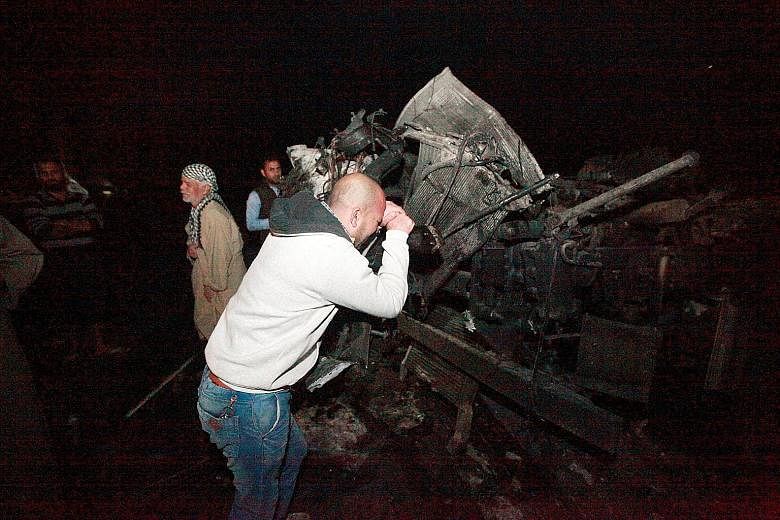HILLA (Iraq) • A suicide bombing claimed by the Islamic State in Iraq and Syria (ISIS) killed at least 70 people, mainly Shi'ite pilgrims, south of Baghdad, as Iraqi forces battled to retake Mosul from the militants.
The truck bomb blast ripped through a petrol station where packed buses returning from the Arbaeen commemoration in Karbala were parked, officials said.
Arbaeen marks the end of the 40-day mourning period for Imam Hussein, an important figure for Shi'ite Muslims.
Most of the dead were Iranians, the largest contingent of foreigners in the pilgrimage, which many consider the world's largest, even bigger than the haj in Saudi Arabia.
Thursday's attack took place near Shomali village, about 120km south-east of Baghdad.
Mr Falah al-Radhi, who heads the provincial security committee for Babylon, the province where the attack took place, said several buses were targeted. "A large truck exploded among them. It was a suicide attack," he told Agence France-Presse. "There are at least 70 dead - fewer than 10 are Iraqis, the rest are Iranians."
Videos circulating on social media showed debris scattered over a large area along the main highway linking Baghdad to the main southern port city of Basra.
The Joint Operations Command in Baghdad issued a statement saying the truck was packed with ammonium nitrate, a chemical compound used in many explosive devices.
Iranian foreign ministry spokesman Bahram Ghasemi condemned the "brutal and inhumane" attack, Islamic Republic News Agency said.
United States National Security Council spokesman Ned Price also condemned the attack, saying it was "clearly intended to stoke sectarian tensions".
Iraq had deployed around 25,000 members of its security forces in and around the shrine city to protect pilgrims. Up to 20 million people visited Karbala, home to the mausoleum of Imam Hussein, for Arbaeen this year. According to the Iraqi authorities, around three million were Iranians.
The attack came two days after Iraqi Prime Minister Haider al-Abadi applauded the security forces for protecting the millions of Shi'ites who have flowed through southern Iraq in recent days.
Until the bombing, the event this year had proceeded safely. That was seen as a success for Mr Abadi and the military, and hailed as a sign that the government could keep pushing a major offensive against ISIS in Mosul while protecting pilgrims in the south.
AGENCE FRANCE-PRESSE, NYTIMES

